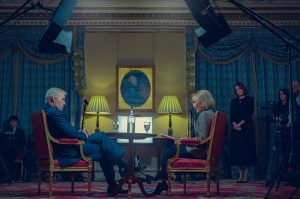There is a fascinating social media group which I think we should all join. It is called ‘DeMOCKracy — 2019 12/12 UK Election Was Undemocratic’. I hadn’t realised, but apparently the election was ‘rigged by Tory billionaires’ to ensure Jeremy Corbyn was defeated. This was done with the aid of fraudulent postal votes, Tory lies, a media which was unanimous in rooting for the Tories — including the BBC and the Guardian! — and will lead, ineluctably, to fascism and the gassing of millions.
Where is the evidence for this chicanery? One woman on there, called Lisa, who had campaigned with the appalling Laura Pidcock in Durham North West, contributed the following by way of explanation: ‘The new Tory MP Richard Holden (former special adviser to Chris Grayling…not from the area, and cleared of a sexual assault charge) rarely gets 200 likes on a tweet or Facebook post, yet Laura gets thousands within minutes…’, so how come Pidcock lost? And below her post the comments read ‘Fix’ and ‘It stinks!’
Lisa’s bewilderment is probably shared by many who apportion rather too much weight to the fury and virtue-signaling of social media, and especially Twitter. The only people who go on Twitter are journos self-publicizing and the relentlessly outraged, relentlessly active, largely middle-class lefties, many of whom paid three quid in 2015 and took over the Labour party.
These people think Twitter is a window on the world, whereas it is really a powerful microscope directed solely at their own flatus. Most people avoid social media as they would a rabid bat, and go on it only to say ‘What time are we meeting for a drink, Bob?’ or ‘Here’s a kitten reciting Sophocles.’ Most people are doing stuff like working, or maybe having a nice time in the real world. One day everyone will grasp that Twitter and its many storms are of importance only to a tiny proportion of the country and amount, in the end, to less than nothing.
But it has to be said — in the culture wars, the liberals own social media, both literally and metaphorically. That it utterly deludes them as to the mindset of the nation is small consolation, I suppose.
The latest manifestation of the culture wars comes with Megxit which, as Brendan O’Neill rightly pointed out, has divided the nation along roughly the same lines as did Brexit. By and large, if you were pro-Leave, you are likely to be anti-Meghan and Harry, for reasons which have something to do with those outdated concepts of discipline, reserve, dignity, tradition, continuity and duty. If you are conservative, you are probably also aghast at the Sussexes’ pre-teen and yet fashionable political obsessions and their continual use of the word ‘progressive’, and would prefer members of the royal family to be a little more circumspect in their pronouncements, except when it comes to being gratuitously rude to foreigners. If you are on the left, the reverse applies.
It should be remarkable that the politician most steadfast in her insistence that Harry and Meghan should continue to have vast amounts of taxpayers’ money spent on them comes from the Labour left, in the form of leadership contender Emily Thornberry. But then the left is no longer the left. Thornberry knows that her constituency is pro-Meghan, partly as a consequence of those aforementioned pre-teen political obsessions and partly because they do not like the conservatism of the elder members of the House of Windsor and partly, of course, because Meghan is mixed race.
As I’ve mentioned before, the liberal left is built on hierarchies of victimhood and being black is a lot better than being white. Plenty of people— such as the dependably idiotic Afua Hirsch — have suggested that racism is behind Meghan’s estrangement from both the royal family and indeed the United Kingdom, a racism encouraged by Brexit and so on. And yet when the engagement was announced, the only conduits which went on and on about Meghan’s race were of course the Guardian and the BBC. Nobody else gave a toss one way or the other what color skin the woman has, and nor do they care very much now. Her race is almost an irrelevance — almost because even for some conservatives there was a certain frisson of pleasure to be had from seeing a non-white person admitted to that very white bastion, the royal family. Certainly that’s how I felt at the time.
The government, meanwhile, has been much less immediately generous in its stated willingness to support Harry and Meghan in perpetuity — probably because Boris Johnson knows that the people who voted for him in the north of England find the behavior of the Sussexes petulant, narcissistic and utterly lacking in a respect for either the institution of which they are senior members or indeed for the country. Remember — those voters are patriots, something which Harry and Meghan do not remotely seem to be.
If there’s one thing we want from our royals, it’s patriotism, you know? ‘God Save the Queen’ and all that? Not much to ask. The working-class north resents their hard-earned money being spent on the royals only when the royals don’t keep up their side of the bargain. Unlike the modern left, it has no great animus against the concept of a monarchy — it merely wishes it to be effective.
This article was originally published in The Spectator’s UK magazine. Subscribe to the US edition here.



















